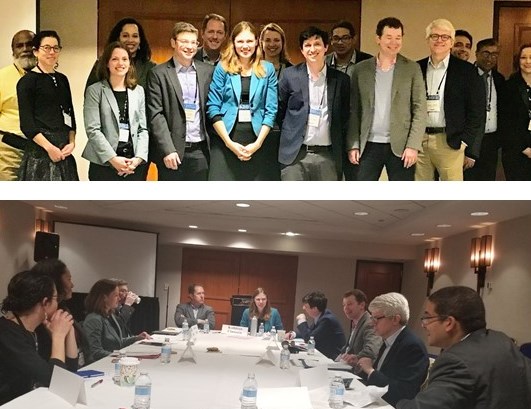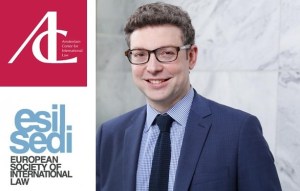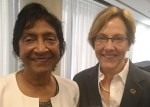
Two scholars on the international law faculty here at the University of Georgia School of Law will take part next week in International Law Weekend 2021, the annual meeting of the American Branch of the International Law Association. Typically held in New York, the meeting, for which Georgia Law is proud to be a Gold-Level Sponsor, will take place online this year on account of the pandemic. This year’s theme is “Reinvesting in International Law.” Registration is now open here.
Both professors will be featured on Friday, October 29 – as follows:
9-10:15 a.m. Outsourcing International Responsibility
Melissa J. “MJ” Durkee, who is Associate Dean for International Programs, Director of the Dean Rusk International Law Center, and Allen Post Professor at Georgia Law, will moderate and contribute to this panel, which will consider how attribution is handled in the Articles on the Responsibility of States for Internationally Wrongful Acts issued twenty years ago by the United Nations’ International Law Commission. Durkee and other panelists – Kristen Boon of Seton Hall Law, Chimène Keitner of California-Hastings Law, and Alex Mills of the Faculty of Laws at University College London – will consider the following question:
When the state outsources public functions to private actors and holds stock in private companies, when should it be responsible for environmental disasters, military activities, cyber-attacks, and other violations of international law?
10:30-11:45 a.m. The Geopolitics of Economic Competition
Harlan G. Cohen, who is Gabriel M. Wilner/UGA Foundation Professor in International Law and Faculty Co-Director of the Dean Rusk International Law Center at Georgia Law, will moderate this panel, which will map the new terrain of global competitive anxiety. Panelists Lauren Brown (Georgia Law JD’19) of Squire Patton Boggs, Sarah Bauerle Danzman of Indiana University Bloomington, Margaret Lewis of Seton Hall Law, and Henrique Choer Moraes of the Embassy of Brazil in New Zealand, will lay out various state policies being adopted, explores the choices facing those caught in the potential crosshairs, and further consider the ways in which international law and its regimes are being challenged, restructured, and reformed. The discussion promises to tell a story of flux and change from the viewpoint of the globe, the state, and the individual.
The full ILW program, which includes keynote addresses by many dignitaries, is here. Registration, which is free for students, is here.





 “The biggest violators of human rights are states themselves, by commission or omission.”
“The biggest violators of human rights are states themselves, by commission or omission.” I was honored to give welcoming remarks at the breakfast. Georgia Law’s
I was honored to give welcoming remarks at the breakfast. Georgia Law’s  On this and other issues, she said, advocates endeavor to encourage states first to obligate themselves to respect and ensure human rights, and then to implement the undertakings they have made in this regard:
On this and other issues, she said, advocates endeavor to encourage states first to obligate themselves to respect and ensure human rights, and then to implement the undertakings they have made in this regard: